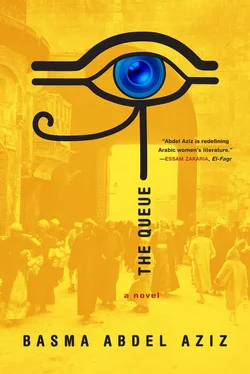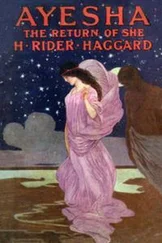Time, Location, and Circumstances of the Injury
The patient, Yehya Gad el-Rab Saeed, arrived at the reception desk at 2:45 p.m. on Tuesday, June 18. Those accompanying him stated he was injured at approximately 1:30 p.m. while passing through District 9, where the Events occurred. They stated that he left company headquarters to meet some clients and employees on the other side of the square when clashes between unknown persons began. The unrest escalated and spread to the surrounding streets. Several of them witnessed his attempt to leave the area. He was injured, however, and they were unable to identify his assailant. They carried him to the hospital on their shoulders, and he was conscious upon arrival, despite a significant loss of blood. They stated that his documents were lost en route, and the bag of merchandise he had been carrying was stolen. As such, there is no evidence of the veracity of their account .
Attached to this file is a detailed list of the names of those accompanying the patient .
Receptionist’s Signature
Tarek mulled over the words jumbled together on the second document with irritation. Yehya’s blood had drenched the floor and the bedsheets when he arrived at the hospital. If a doctor or nurse had been with him when he’d been injured, she would have made the others carry him more carefully. Doing so would have taken just enough time for them to arrive at the emergency room an hour or so after Tarek’s shift had ended, and the name of another doctor would have been at the end of this file: perhaps Ahmed or Bahaa or even Samah. Or if they’d just waited for one of the ambulances from Zephyr Hospital to arrive at the square, that would have been it; Tarek wouldn’t have run into them in the emergency room at all. But Yehya had come straight to him, the first of the arrivals, his body a map of the battle. Tarek removed the pencil he always kept in his coat pocket and began to doodle on the page, absorbed in the lines and curves he’d begun to create, summoning an artistic side he had long since abandoned, one detached from everything else surrounding him. A couple of minutes passed before he awoke from his reverie. He abandoned his rumination about the Events, tossed the pencil down, and stood up from his leather chair.
On half of the second document, in a space without words, he had drawn a figure resembling Yehya, nearly naked, and a small, solid circle, completely shaded in, occupying a space in the lower left part of his stomach. He opened the door, asked Sabah for another cup of black coffee, and then turned around, glancing over at his desk. He picked up an eraser and carefully erased what he’d drawn. He lifted the paper up to the light coming in through the window and looked at Yehya’s outline and the shadow of the solid circle, no longer there.
About a week after Um Mabrouk arrived with the letter, two events took place that sparked curiosity and commotion in the queue. First, the elderly woman from the South, who hadn’t sat down to rest for a moment since arriving, suddenly collapsed. Her son appeared instantly, a tan young man who carried her off before anyone could ask how he’d known she’d fainted. Some said she was overcome with fatigue and her spirit had risen to meet its Creator, while others said she had survived and was put in intensive care in the military hospital, where they could monitor how her heart and lungs were functioning. But the man in the galabeya , who had appeared in the queue quite suddenly without explanation, proclaimed this a sign that God was angry because she had wronged herself and all other citizens. Despite coming to the Gate and acknowledging what she had done, she did not repent or hide the error of her ways — instead she flaunted it, unabashedly parading it around. Even worse, instead of coming to submit an apology or ask God for forgiveness, she was bent on filing a complaint, as if she were the one who’d been wronged. Silence gathered around him, as he raised his palms to the sky and called out: “Only those who have gone astray picked pyramid candidates!”
The second event was the appearance of Ehab, who announced straightaway that he was a journalist. He didn’t try to hide it, as reporters who’d arrived before him often had. He considered himself above reserving a place in the queue and instead began to work his way up and down past the people waiting, asking questions and recording everything in a little notebook. He’d started out as a rioter, an activist flush with enthusiasm, and the vast distances he traversed throughout the day still never seemed to tire him.
Meanwhile, the people standing at the threshold of the Gate estimated that there were three whole kilometers between them and the end of the queue — much to the chagrin of those near the end, who insisted they weren’t nearly that far away. At the queue’s midpoint, the two sides were about to erupt into a brawl over their varying estimations of the distance when a well-known surveyor standing in the middle of the queue intervened and volunteered to settle the matter. Asking for a bit of quiet, he ran some quick calculations, using his geographical knowledge of the area, information provided to him by both parties (representatives from the beginning and the end of the queue), and a detailed description of the area’s various landmarks and general terrain. He made sure to include land now occupied by the queue’s most recent additions, those who had joined throughout the night. Finally, with pen and paper in hand, the man announced that the distance was in fact approximately two kilometers. Those who had been at each other’s throats just a moment before were satisfied and stopped shouting, and everyone returned to their places, pleased with the results.
Yehya felt that the day had already been plenty eventful, in contrast to the endless empty days that had come before it. People in the queue had enough to debate and discuss until nightfall, and Yehya thought it unlikely that yet another big event — like the opening of the Gate — would happen as well. Besides, the Gate wouldn’t reopen without releasing some kind of announcement beforehand. He was becoming annoyed with Ehab and his questions, the outrage he could conjure out of thin air, his insistence on launching into ridiculous subjects and extracting answers to questions that were of no consequence to anyone else. His thoughts returned to Amani, and he realized he should hurry to visit her. It didn’t look like anything else was going to happen at the Gate today. Although momentum seemed to be building, things happened slowly here, and leaving for a little while wouldn’t do any harm.
As soon as the old Southern woman was taken away, Ines — that foolish young teacher he considered a bit strange — had appeared in front of him. Everyone had something to say to her, and she tirelessly listened to their trifling concerns and endless stories, but no one had ever heard her utter anything important or useful. Yehya wasn’t at all inclined to speak to her. He didn’t want to tell her he would be leaving for a couple of hours, despite the conventions of the queue, which had developed over the passing days and were now practically set in stone. If he told the people around him a bit about himself and where he was going, he would be allowed to keep his place in the queue — even if he left for a long time — but Yehya decided to shirk tradition and take the risk. He left without a word and calmly slipped away. Nagy caught up with him, instinctively falling into step without knowing where they were headed.
Читать дальше











